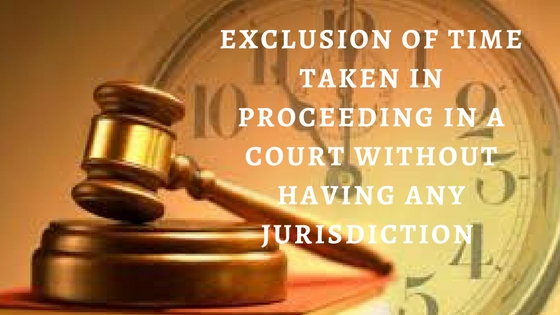Aapka Consultant Judgment Series– In this series, we are providing case analysis of Landmark Judgments of Hon’ble Supreme Court of India.
State Bank of Hyderabad v. Joint Family of M/S. Mukundas Raja Bhagwan Das and Ors
1995 [2] SCR 947, 1995 [2] Suppl. SCC 544
JUDGES: K. Ramaswamy and S. Saghir Ahmad
Date of Decision: 22.03.1995 FACTS
The facts, in nutshell, are that the respondent taken loan from the appellant by executing promissory note in 1953. Thereafter, part payments were also made by the respondents in 1958 and 1959. Later, respondent as Jagirdar filed application under S. 11 of Jagirdar Debt Settlement Act, 1952 for scaling down the debts and the Bank submitted statement of account stating amount due from the respondents. However, the Board held that it had no jurisdiction to entertain the claim. The appellant-Bank filed a suit for recovery of the amount due from the respondents. The trial Court dismissed the suit on the ground that it was barred by limitation. The High Court confirmed the order of Trial Court. Hence this appeal by the appellant bank against the order of the High Court rises.
ISSUES1. Whether the suit filed by the appellant was barred by the limitation period under Article 35 of the Limitation Act, 1963?2. Whether time taken in proceeding under the Act should be excluded for the purpose of filing suit? JUDGEMENT
It is true that the benefit of S.14 of the Limitation Act would be extended only to the plaintiff who has instituted the suit in a wrong forum and had prosecuted the proceedings in good faith in that court which ultimately found to have defect of jurisdiction or other cause of a like nature. The period during which such proceedings were prosecuted, would be excluded in computing limitation. The Scheme of the Act would indicate that all claims relating to a debt involving a Jagirdar are to be considered and adjudicated upon by the authorities including the Board constituted under the Act. When a Jagirdar files an application for scaling down the debt and the creditors file their claims, the position of the latter, namely, the creditors is that of the plaintiff, as their claim would be considered and appropriate orders for payment of the amount, though not necessarily the full amount due from the Jagirdar, would be paid. But this does not change their status and for purpose of Section 14 of the Limitation Act, they would, notwithstanding that the proceedings were initiated under the Act on an application made by the Jagirdar would be that of a plaintiff in a civil suit.
When the Jagirdar himself made an application under Section 11 together with an application under Section 30 read with Section 22 of the Act, until the proceedings are determined the creditor has no right to lay the suit by operation of Section 25 of the Act. The necessary implication is that the jurisdiction of the civil court under Section 9 of the CPC stands excluded. Consequently, the appellant could lay the suit in 1962 though it was partly paid by the respondents. Since the application was held to be not maintainable by the Board on 25-10-1967, the suit was clearly within limitation when it was laid on 10-2-1970. It is not correct to say that there should be a finding recorded by the Board that the respondent is not a debtor to get the benefit of Section 57. That view does not help the respondents. In the light of the scheme of the Act, the time taken in the proceedings under the Act gets excluded under Section 14 of the Limitation Act. Accordingly, the suit is within limitation.
HELD
Hence, appeal allowed for excluding the proceeding of suit filed before court without jurisdiction u/s 14 of the Limitation Act and the suit filed was within the limitation period.
To Get Legal Opinion from Advocates/ Legal Experts, Please click here
To Get Legal Opinion from Retired Hon’ble Judges, Please click here












